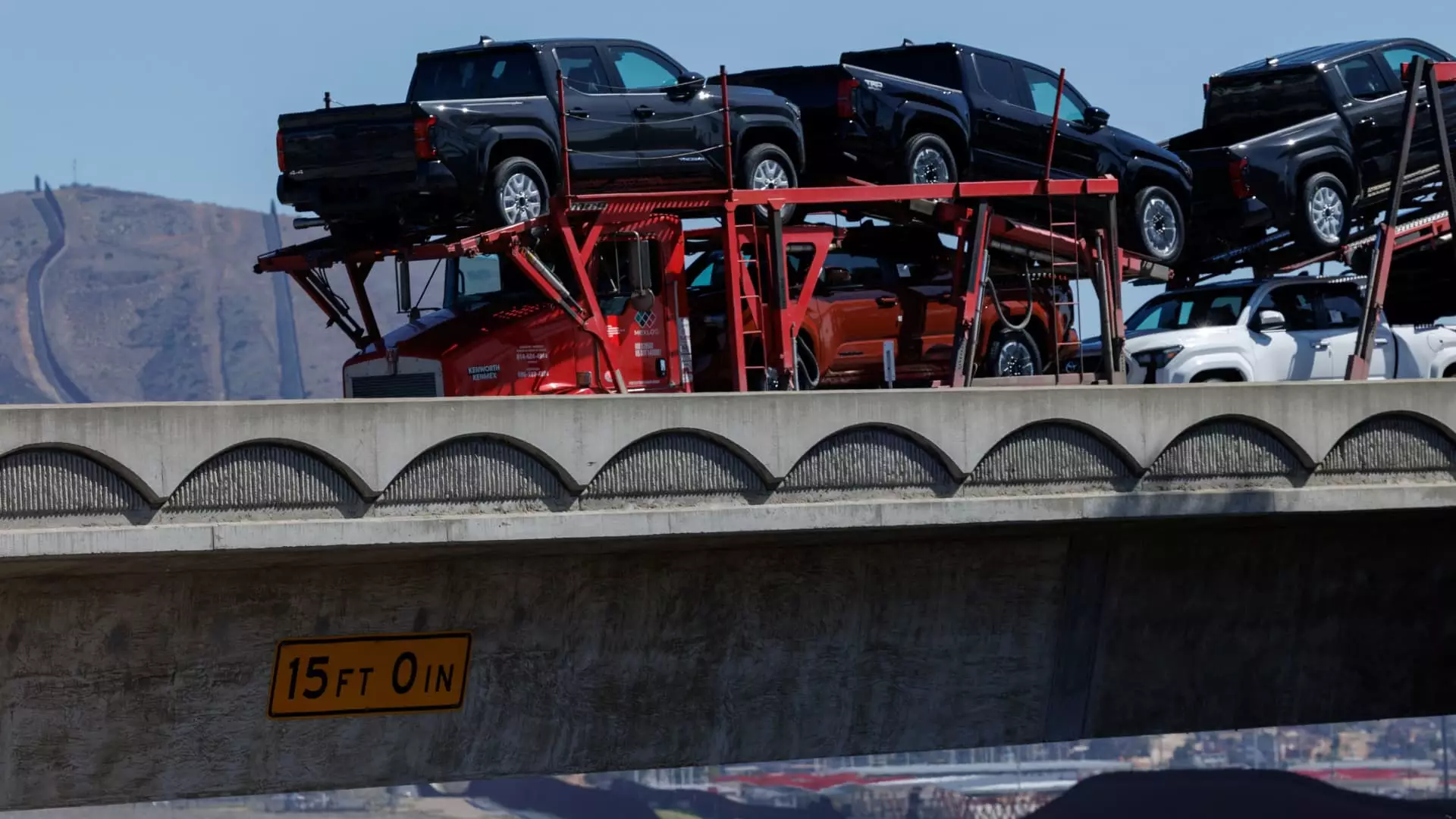The recent announcement by former President Donald Trump regarding a hefty 25% tariff on imported automobiles and auto parts has sent shockwaves across the auto industry. As the administration prepares to enforce these tariffs, set to take effect in early April for vehicles and May for parts, the immediate fallout is already observable in stock markets. The once stalwart “Detroit Three”—General Motors, Ford, and Stellantis—are witnessing significant declines in their stock valuations, raising questions about the long-term viability of such protective measures.
The automotive landscape is undergoing a transformative shift, and the implications of this policy could extend far beyond the balance sheets of auto manufacturing giants. This intensified trade protectionism signals a potentially lingering era of uncertain economic repercussions. As corporations grapple with Australia’s newfound isolationist stance, they face the dual challenge of tightening profit margins while trying to navigate an interconnected global supply chain that is as complex as it is vulnerable.
Short-Sighted Economic Decisions
It’s strikingly ironic that a tariff aimed at bolstering American jobs could ultimately backfire, sinking the very companies it purportedly aims to protect. While Trump has vowed these tariffs will lead to greater job security for American autoworkers, the reality is much murkier. Analysts are already cautioning that the price of imported vehicles could surge by as much as $15,000, potentially leading to an overall increase in car prices that could leave consumers scrambling. Such inflationary pressures undoubtedly threaten to dampen sales and push many customers into the arms of foreign competitors.
The United Auto Workers’ union seems enthusiastic about the potential for job creation, yet the union’s enthusiasm must be tempered with a healthy dose of realism. Economic history is replete with instances where protectionist measures have not only failed to deliver on their promises but have also led to spiraling costs for consumers, reduced choice, and ultimately, market stagnation. In an age characterized by globalization, naively isolating American auto manufacturing from its foreign counterparts may prove to be an untenable strategy.
The Delicate Fabric of Auto Manufacturing
The intricate web of auto parts and assembly processes highlights the fragility of enforcing tariffs in such a globalized industry. With over 20,000 parts comprising a single vehicle, according to S&P Global Mobility, manufacturers find themselves in a situation where many components are sourced from a multitude of countries. Given that roughly 65% of light-duty passenger vehicles are assembled in the U.S., any production hiccup or price increase may reverberate throughout the industry.
Both productivity and efficiency could face significant turmoil as manufacturers are forced to reassess supply chains. The consequences can lead to delays, lower standards of quality, and an influx of higher prices. It is disconcerting to think that the very mechanics designed to protect U.S. jobs could inadvertently destabilize an already fragile market dependent on seamless cross-border collaborations.
New Variables in an Old Game
The role of companies like Tesla presents an interesting dynamic within this turbulent environment. Slightly insulated from the immediate hits taken by traditional automakers, Tesla’s operational structure and assembly facilities grant them a more favorable position. However, this does not allow room for complacency. The repercussions of these tariffs extend to renewable automotive technology and can impact the broader market’s evolution.
In a world increasingly focused on sustainability, it becomes paramount to question whether shielding domestic manufacturing will yield the innovations needed to thrive in this new era. Already, established players like Ford and GM are competing with emerging threats in the electric vehicle market. Retaining competitiveness will require more than just tariff protections; it demands an aggressive commitment to research and development—a sector that thrives on maintaining a global outlook.
A Call for Balanced Policy Making
As discussions surrounding tariffs continue to unfold, the cautionary words of various industry leaders like Matt Blunt underscore the need for balanced policymaking. The emphasis should be on protecting American interests without stifling the interconnectedness that powers modern manufacturing. Implementing these tariffs without considering their broader impacts could exacerbate economic unpredictability, with consumers shouldering the burden of increased costs.
These policy decisions represent a critical juncture for America, one that could either reinforce a return to strong manufacturing roots or unravel years of economic progress. As the auto sector steers into uncharted waters, a sensible mix of protectionism coupled with thoughtful engagement in global trade may hold the key to ensuring that American workers and consumers are not left behind in the process.

